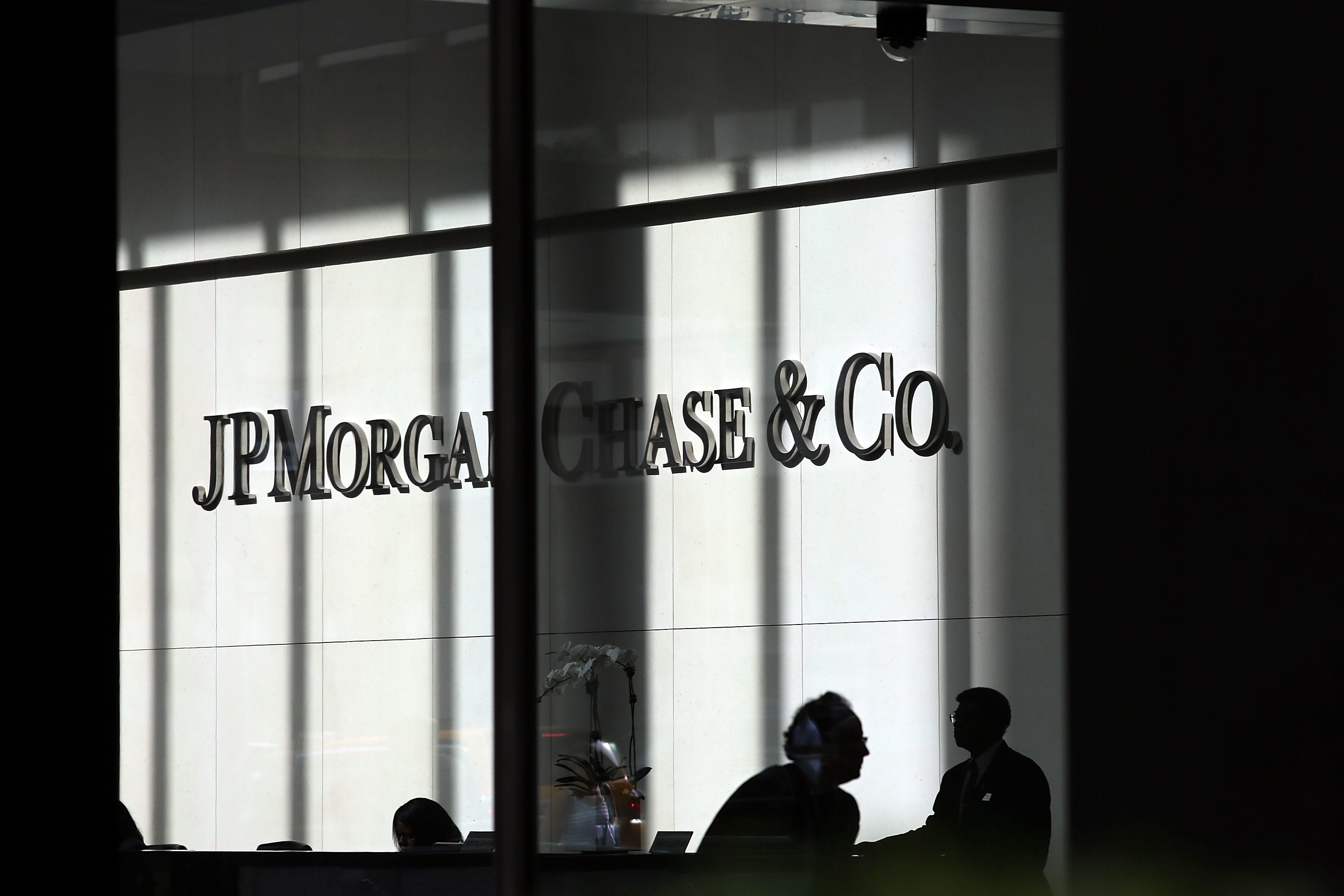A customer uses a JPMorgan Chase & Co. automatic teller machine (ATM) outside a bank branch in Miami, Florida, on Thursday, Jan. 5, 2017.
Scott McIntyre | Bloomberg | Getty Images
JPMorgan is building its credit reserves in anticipation that people might not be able to pay their bills, especially for credit cards. The bank’s first quarter earnings statement showed its credit reserves increased by $6.8 billion from the prior year, 56% of which was set aside for its consumer card division.
“In the first quarter, the underlying results of the company were extremely good, however given the likelihood of a fairly severe recession, it was necessary to build credit reserves of $6.8B, resulting in total credit costs of $8.3B for the quarter,” CEO Jamie Dimon said in the earnings release.
Of the $6.8 billion, more than half — or $3.8 billion — is earmarked for the bank’s Card division. In total $4.4 billion is allocated for consumer finance, with the remaining $2.4 billion for the bank’s wholesale business. JPMorgan noted that the largest impacts would likely be felt in the oil and gas, real estate, and consumer and retail industries.
The $3.8 billion increase brings the total allowance for credit losses in the bank’s Card division to $15 billion as of March 31, which is an almost threefold increase from the $5.7 billion at the end of 2019. The new number also includes $5.5 billion from an accounting charge related to the Current Expected Credit Loss (CECL) standard.
The allowance for credit losses makes up more than half of the bank’s firmwide reserves of $25.4 billion.
The firm cited the “deterioration in the macro-economic environment” caused by the coronavirus pandemic as the primary reason for beefing up its reserves.
For the quarter JPMorgan posted earnings per share earnings of 78 cents, a figure that missed analysts’ $1.84 estimate. JPMorgan’s profit of $2.87 billion plunged 69% from a year earlier, driven mostly by the credit provisions, while revenue proved to be more resilient, slipping 3% from a year earlier to $29.07 billion.
“It is very difficult to estimate the impact of the extraordinary stimulus, including the direct payment as well as enhanced unemployment insurance for customers,” JPMorgan CFO Jennifer Piepszak said following the earnings release. “So it will really come down to the ultimate effectiveness of these programs bridging people back to employment,” she added.
The firm’s view is that unemployment will hit 20% in the second quarter, before recovering in the back half of the year.
– CNBC’s Hugh Son contributed reporting.
Subscribe to CNBC PRO for exclusive insights and analysis, and live business day programming from around the world.
